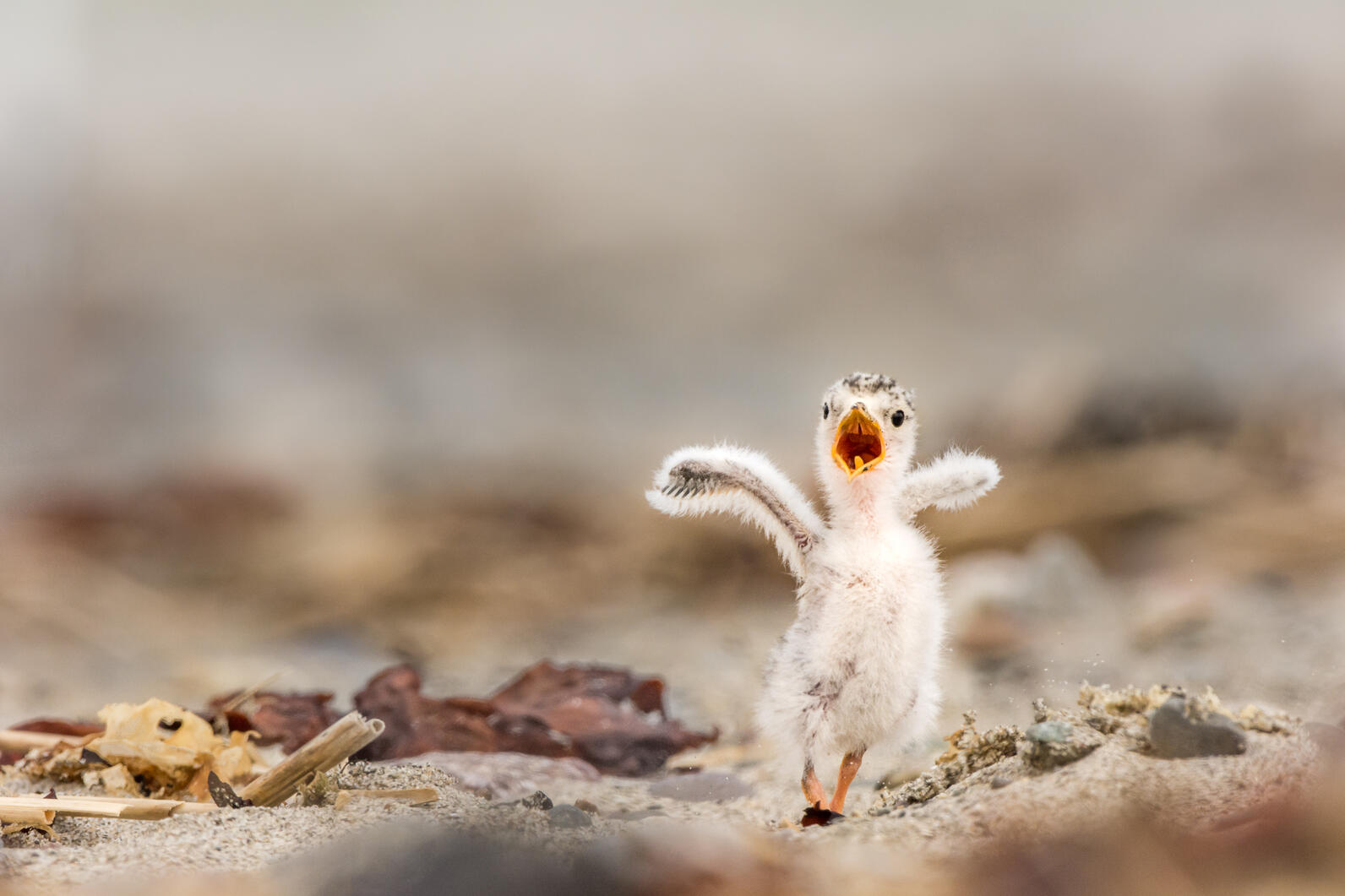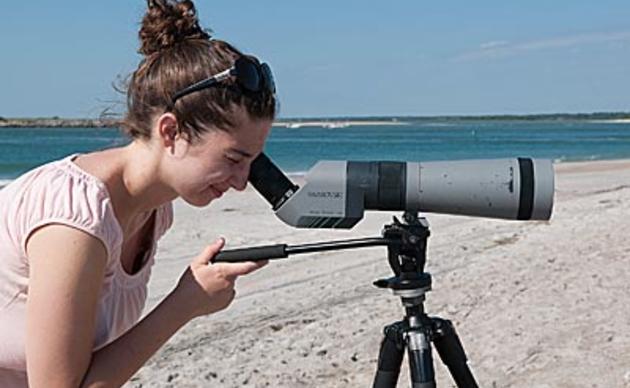This Summer, Share the Shore With Nesting Birds

A day at the beach is a vacation for most people. Residents and tourists alike travel to North Carolina beaches throughout the year to swim, fish, or just stroll down the sand. Many beach-goers also enjoy watching the many unique species of waterbirds that feed and nest on our beaches.
Least Terns, Common Terns, Gull-billed Terns, Black Skimmers, Piping Plovers, Wilson's Plovers, Willets and American Oystercatchers are some of the many colorful waterbirds share North Carolina’ beaches with us. Many of these species nest on open, bare sand, often near inlets and capes. Their nests are small, shallow, unprotected depressions scraped directly into the sand. Casual observers can easily overlook the eggs because they are perfectly camouflaged to blend in with sand and bits of shell.
As the number of people along North Carolina's coast increases, so do the threats to birds that must use the same sandy stretches to raise their young. Many waterbirds nest in colonies – big groups of birds nesting together in one place. Entire colonies can be unintentionally wiped out by human or pet disturbance.
People often disturb nesting areas because they are simply unaware that birds are nesting nearby on the wide, open and bare expanses of sand. Likewise, they might be unaware that walking through the nesting area can harm the eggs or chicks. When nesting parents are disturbed and fly off of their sandy nests, it only takes minutes for chicks or eggs to die under the heat of the summer sun.
If you're at the beach between April and September during waterbird nesting season, be on the lookout for the following bird behaviors or marked off areas that indicate that birds are nesting nearby.
- Adult birds standing or sitting on the beach strand or near dunes
- Adults engaged in courtship displays, broken wing or injury displays
- Adult birds dive-bombing people or pets
- Adult terns or skimmers carrying fish
- Nests or nest scrapes
- Eggs or chicks
- Signs hung on rope strung between posts in the sand encircling a nesting site
When you see these behaviors, please move away from the area so the parents can continue to take care of their eggs and chicks.
How you can help, right now
Donate to Audubon
Help secure the future for birds at risk from climate change, habitat loss and other threats. Your support will power our science, education, advocacy and on-the-ground conservation efforts.
Sign Up For Our eNewsletter
Keep up-to-date on all that happens with Audubon North Carolina's research, events and volunteer opportunities.




